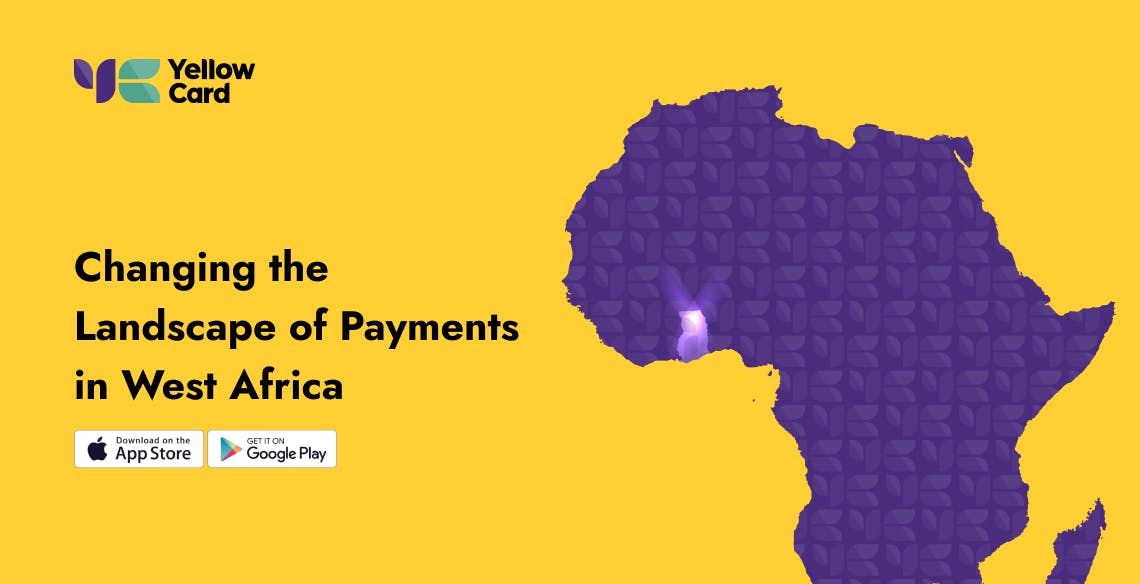The Changing Landscape of Payments in West Africa
Insights
Back to blog
Cedric G.
2022-07-26
Insights
On this page
Fintech enterprises are changing the system of financial transactions in Africa as time goes by. Beside banks, mobile payment services and cryptocurrency platforms are at the center of financial inclusion in West Africa
Fintech enterprises are changing the system of financial transactions in Africa as time goes by. And It is no news that some few years back, to send or receive money, one needed to use the services of a bank. We still do, but how often?
Nowadays, in West Africa, as in other parts of the world, it has become a widespread practice for people to use their smartphones to carry out transactions. With the rapid development of financial technologies, traditional banking systems, which have most often monopolised the movement of money, are bracing up to meet the new standards.
West Africa’s fragmented payment system, comprised of banks, mobile money platforms, and other payment agencies, is driving most countries in the sub-region - Ghana, Senegal, Cameroon, Nigeria, and others - toward a cashless society.
This article points to three significant changes and existing opportunities that are game changer to the landscape of payments in West Africa.
Evolution of payment services in West Africa
As far as the movement of money is concerned, everything has changed. Mobile payment platforms have brought bank services closer to people than ever before.
- The proliferation of mobile payments
In Ghana, Mobile Money services are offered by mobile network providers, with MTN and Vodafone playing a leading role.
The exponential growth of Momo users is proof that most Ghanaians are more comfortable with mobile payment services. With its good performance, it is expected that MoMo will drive financial inclusion by not only providing users with a service to make money transfers but will also permit the use of other financial services that MoMo offers, such as payment of electricity and water bills among others. - Bank transactions using USSD codes
With the modernisation of banking systems, most banks in Ghana provide Unstructured Supplementary Service Data (USSD) payments for their clients — permitting them to use shortcodes without needing an internet connection to carry out transactions easily.
Mobile payment services, Credit cards, and USSD codes are paving the way to cashless societies by giving urban and rural populations in Ghana access to essential banking.
In other words, banked citizens do not have to go through the stress of queuing up in banks to cash out. - The advent of cryptocurrencies
Cryptocurrencies are influencing payment methods worldwide. While Ghanaians are getting accustomed to the use of crypto, Nigeria her closest is the leader in cryptocurrency payments in Africa. In 2020, approximately $400 million were transacted in Nigeria through bitcoin.
Between 2020 and 2021, the Ghanaian economy, like all other economies, was hit by the COVID-19 pandemic, leading to an economic recession. The Russian-Ukrainian conflict which is negatively impacting world economies is not sparing Ghana.
Thus, Ghanaians, Nigerians, Senegalese, and Cameroonians amongst other countries in West Africa are continuously looking for alternative sources of income, and alternative currencies like USDT are becoming more attractive as they are pegged on the United States dollar and cannot be affected by the devaluation any other currency.
It is, therefore, intelligent to save or make transactions using USDT.
Fintech innovation as the gateway to financial inclusion for all
All solutions provided by the Fintech industries in Africa aim to offer customers seamless financial services at cheaper rates.
With financial services at our doorsteps, depending on mobile payments, we can do more with money than possible.
As such, underbanked and unbanked citizens can move money within and across national borders without necessarily being affiliated with a bank.
Since this has been considered the norm for centuries, people have been more productive when they own and control their money.
Small and Medium-sized enterprise owners have always agreed that it is less costly to make transactions using mobile payments than bank payments.
This is even truer as far as transactions with cryptocurrencies are concerned. Besides, entrepreneurs can purchase goods and services from different parts of the world without any inconvenience when they trade using crypto.
Keypoints
In West Africa, bank services are not obsolete but are not frequently used as before. However, they are evolving and offering more user-friendly services.
New financial solutions are being offered by Mobile payments that seem to be seamless and time-saving.
USDT is a haven for economies that experience frequent currency devaluations and serve as a safer, cheaper, and faster payment method through crypto exchange platforms like Yellow Card.
Disclaimer: This article is for information purposes only and should not be construed as legal, tax, investment or financial advice. Nothing contained in this article constitutes a solicitation, recommendation, endorsement or offer by Yellow Card to buy or sell any digital asset. There is risk involved in investing or transacting in digital assets, please seek professional advice if you require one. We do not assume any responsibility or liability for any loss or damage you may incur dealing with digital assets. For more information on Digital Asset Risk Disclosure please see - Risk Disclosure.


